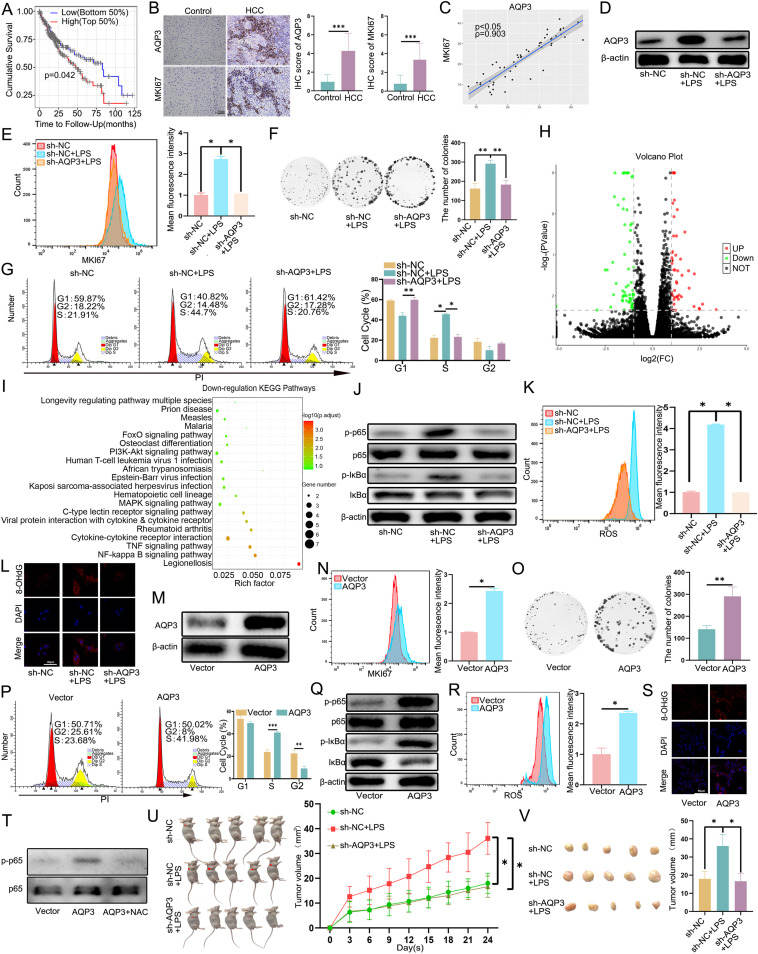
Aquaporin-3 promotes proliferation and inflammation in hepatocellular carcinoma


Carcinogenesis is closely associated with inflammation. Studies have shown that lipopolysaccharides (LPS) can contribute to hepatocellular carcinoma (HCC) development by inducing IL-6 and TNF-α production from the hepatic progenitor cells.1 Aquaporin 3 (AQP3), a water channel protein, has recently been found to play a critical role in cancer-associated inflammation.2,3 However, it is still unclear whether AQP3 is involved in LPS-triggered proliferation and inflammation in HCC. In this current study, we found that AQP3 expression was negatively correlated with the overall survival rate of HCC patients and positively associated with MKI67 expression in human HCC patients. In vitro study demonstrated that AQP3 promoted LPS-induced cell proliferation, colony formation, and inflammation in HCC cell lines. In vivo xenograft model further demonstrated that AQP3 could promote tumor growth induced by LPS. In summary, the present study proved that AQP3 functioned as an oncogene and might serve as a promising target for cancer therapy.
